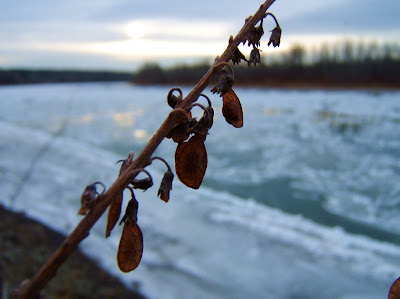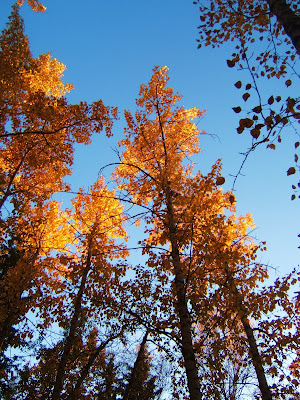 evening view from the front window of the lodge, shrine of st. thèrese, juneau, ak, june 5/08
evening view from the front window of the lodge, shrine of st. thèrese, juneau, ak, june 5/08(whale in the distance)
I keep meaning to tell stories from the beginning of summer, from my trip back up to Whitehorse. During that time, I also went on an excursion down to Juneau, where I accompanied the traditional dance group from the elementary school where I did some of my fieldwork. I felt so lucky to be asked along to accompany the dancers to
Celebration 2008, where they'd perform in this gathering of coastal peoples, connecting as the inland relatives, historic trading neighbours of the interior. I was so grateful they would think of me, & also so excited to witness this gathering & see the dancers and language students perform. While the whole trip was very powerful, a fitting culmination to my fieldwork, there is one particular thing I can't stop thinking about, a story I want to keep telling, because I feel so honoured that I was there to witness it.
We stayed at a retreat lodge, a little ways up the coast from Juneau, on a beautiful stretch of land by the gentle bay, which we soon discovered was frequented by eagles & herons & cormorants, otters, seals, as well as humpback whales. The night we arrived, the dancers had practiced for their next day's performance out on the lawn between the lodge and houses. Long pre-solstice shadows twisting amongst the drumbeats, endless coppery gleaming of the water. & the whales seems to be attracted to the sounds, as they circled at the edge of the bay, loud exhales mixing with the singing, mist rising up thick in honey-ambered light.
The next night, it poured. Sitting in the living room of the lodge, we were finishing dinner, writing in journals. Some of the kids were singing, practicing songs for the next day. Then someone saw a shape out in the bay & we were pressed up to the rainy glass, watching for the steam amongst the raindrops. Two whales were there, breaching up in the spray. A few kids rushed out onto the porch, leaning over slippery railings, & then one boy came barrelling out down the steps, one of the dancing drums tucked under his arm, headed for the shoreline.
& that's when all the kids followed, & began to sing. They headed out for the point, under the dripping cedars, clambering gingerly over mussel-slick boulders to the very edge of the land above a cutbank. & they sang their dancing songs, their songs in Southern Tutchone. A welcome song, a potlatch song of power passed down from an old matriarch. They sang without anyone leading, anyone guiding. & everyone joined in these land-locked songs carried down to the coast for whales who had probably never heard anything like this before.
They were close; we could see their barnacle-riddled skin, their tiny abalone-shiny eyes in their wet slate faces. They were breaching; later one dancer's father, who was Inuvialuit & had hunted bowheads along the North Slope, identifed them as a mother whale teaching her baby how to dive deep, resurface, to play in the whitecaps tossed up by the storm.
& the kids kept singing, a song they'd just learned about having to leave a country behind, not knowing when you might return. & it soon became apparent that the whales were moving closer, closer to the rocks, their wild exhales mixing with the drumbeats & the crashing of waves on shore. Our breaths, sliding between our phrases, could they feel our hearts, connected? They're coming, someone might have yelled, keep singing! & the whales came closer, closer, ebbing out again, but still staying near as long as we sang.
Even now, months later, if I'm really quiet, I hear us yelling out hoarsely, I feel my raw throat & the tears pricking in my eyes. I see them all standing there, slipping on the rocks, soaking, their hair plastered down like black seaweed. Even now, I am overcome with memories of this rich act -- I am still in awe of the kids, their spontaneous instinct to sing for these animals, the way their hands flew up to carry the sound, just like the Elders do at potlatches. Still in awe of how the whales responded, coming closer, the connection between our voices & their groans & watery breathing, the connection made of songs.
I've told a lot of people this story, & not everyone gets it. Maybe I don't do it justice, Maybe they have trouble believing that whales would react this way, but really, it's not a matter of believing, it doesn't need to be analysed. It goes deeper than that. It just was. It happened.
These kids sang in Southern Tutchone for the whales, picked up their drums & their language, made the language live in a way it should. They chose it over English; they reconnected with a usage of their native language so rare now, though their Elders still speak of it -- the conversations between people and animals, between any beings. And the whales responded, somehow, there was a connection there, an affirmation in their curious motions, something that made my knees go weak & my whole body warm with rain & tears.
Right now, I think of all of my time in the Yukon over this last year, & all I can think of is that one song they sang: Oh my friend, I'm leaving your country, (I'm right at that place where the mountains dissolve into the horizon), I'm looking back and wondering, my friend, what can I do to go back there again?
 dried flower heads, past sunset, the river valley, dec. 28, 2008.
dried flower heads, past sunset, the river valley, dec. 28, 2008. 













































